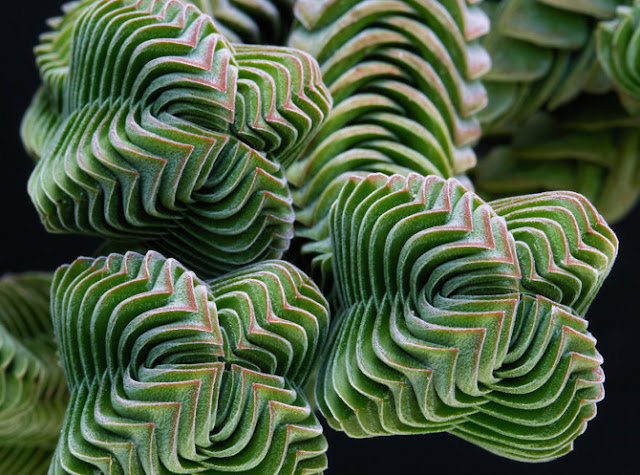Since a 2008 car accident that shattered bones in his left arm, shoulder, and elbow, marijuana has served as an effective pain reliever for award-winning actor Morgan Freeman.
Freeman, an unabashed supporter of marijuana legalisation, recently told the Daily Beast that there were too many medical benefits for lawmakers to ignore the issue, and public opinion, any longer.
“Marijuana has many useful uses. I have fibromyalgia pain in this arm, and the only thing that offers any relief is marijuana,” Freeman said. “They’re talking about kids who have grand mal seizures, and they’ve discovered that marijuana eases that down to where these children can have a life. That right there, to me, says, ‘Legalise it across the board!’”
 |
| CREDIT: PHOTO BY RICHARD SHOTWELL/INVISION/AP |
Freeman counts among a growing chorus of celebrities who have expressed their support of marijuana legalisation. Whoopi Goldberg, former comedian and co-host of daytime talk show The View, defended marijuana legalisation before more than 3 million viewers, even inviting her co-hosts on a marijuana farm to learn more about the plant. Veteran actress Susan Sarandon, a member of the Marijuana Policy Project’s advisory board, admitted to sparking up before every award show. Even his holiness the Dalai Lama surprised Buddhists and non-Buddhists alike when he said that marijuana should be used for medical purposes.
These public figures have echoed a growing sentiment and shift in thinking about marijuana in the United States that has been in motion since California legalised medical marijuana in 1996. Since then, four states have legalised it and 12 have passed legislation for its medical use and decriminalisation. Doctors prescribe marijuana for a host of ailments including muscle spasms caused by multiple sclerosis, nausea from cancer chemotherapy, seizure disorders, poor appetite and weight loss caused by HIV, and nerve pain. Studies have also shown marijuana to be a less addictive alternative to prescription painkillers.
The debate has even crossed into veteran affairs. If a bipartisan coalition of lawmakers have their way, doctors in states that have legalised medical marijuana will be able to prescribe it to veterans suffering from post-traumatic stress disorders. This week, Tennessee Governor Bill Haslam signed a bill for limited medical use of cannabis oil, a product that some medical professionals say treats seizures.
Even with the headway made in marijuana policy reform, the plant maintains its designation as a Schedule 1 substance, along with other drugs that the federal government says have a high potential for abuse and are without medical benefits. In his comments to the Daily Beast, Freeman also derided what he described as archaic logic.
“They used to say, ‘You smoke that stuff, boy, you get hooked!’” Freeman said. “My first wife got me into it many years ago. How do I take it? However it comes! I’ll eat it, drink it, smoke it, snort it! This movement is really a long time coming, and it’s getting legs – longer legs. Now, the thrust is understanding that alcohol has no real medicinal use. Maybe if you have one drink it’ll quiet you down, but two or three and you’re fucked.”
The government’s rationale for not legalising marijuana, however, may no longer stand with the release of a study that confirmed the plant’s potential to reduce aggressive types of brain tumors when combined with radiation treatment. In April, the National Institute on Drug Abuse (NIDA) issued a revised report acknowledging the St. George University of London study and findings summarised in a research report last November. “The U.S. Food and Drug Administration (FDA) has not recognised or approved the marijuana plant as medicine,” the statement read. “However, scientific study of the chemicals in marijuana, called cannabinoids, has led to two FDA-approved medications that contain cannabinoid chemicals in pill form. Continued research may lead to more medications.”
For now, conducting further study will be easier said than done. Federal barriers to research mean that scientists often have to jump through hoops to secure samples legally through the U.S. Department of Health and Human Services and NIDA, a process that delays research by months, and oftentimes years.
That’s why there’s been some pressure to reclassify marijuana. Earlier this year, the American Academy of Pediatrics urged the federal government to downgrade marijuana to a Schedule II drug, which would allow for more research into its potential uses to treat sick children suffering from seizures. “A Schedule I listing means there’s no medical use or helpful indications, but we know that’s not true,” Seth Ammerman, a clinical professor in pediatrics at Stanford University who co-authored the group’s policy statement on the subject, said at the time.
Editors' Recommendations:
Colorado Sells $19 Million in Cannabis in March: $1.9 Million Goes to Schools and Crime Down 10%
20 Lessons From Charles Bukowski
What Is An Ambivert And How To Find Out If You Are One
Heart Warming Illustrations Of What Real Love Looks Like By A Korean Artist
12 Toxic Behaviors That Push People Away From You
source: ThinkProgress
These public figures have echoed a growing sentiment and shift in thinking about marijuana in the United States that has been in motion since California legalised medical marijuana in 1996. Since then, four states have legalised it and 12 have passed legislation for its medical use and decriminalisation. Doctors prescribe marijuana for a host of ailments including muscle spasms caused by multiple sclerosis, nausea from cancer chemotherapy, seizure disorders, poor appetite and weight loss caused by HIV, and nerve pain. Studies have also shown marijuana to be a less addictive alternative to prescription painkillers.
The debate has even crossed into veteran affairs. If a bipartisan coalition of lawmakers have their way, doctors in states that have legalised medical marijuana will be able to prescribe it to veterans suffering from post-traumatic stress disorders. This week, Tennessee Governor Bill Haslam signed a bill for limited medical use of cannabis oil, a product that some medical professionals say treats seizures.
Even with the headway made in marijuana policy reform, the plant maintains its designation as a Schedule 1 substance, along with other drugs that the federal government says have a high potential for abuse and are without medical benefits. In his comments to the Daily Beast, Freeman also derided what he described as archaic logic.
“They used to say, ‘You smoke that stuff, boy, you get hooked!’” Freeman said. “My first wife got me into it many years ago. How do I take it? However it comes! I’ll eat it, drink it, smoke it, snort it! This movement is really a long time coming, and it’s getting legs – longer legs. Now, the thrust is understanding that alcohol has no real medicinal use. Maybe if you have one drink it’ll quiet you down, but two or three and you’re fucked.”
The government’s rationale for not legalising marijuana, however, may no longer stand with the release of a study that confirmed the plant’s potential to reduce aggressive types of brain tumors when combined with radiation treatment. In April, the National Institute on Drug Abuse (NIDA) issued a revised report acknowledging the St. George University of London study and findings summarised in a research report last November. “The U.S. Food and Drug Administration (FDA) has not recognised or approved the marijuana plant as medicine,” the statement read. “However, scientific study of the chemicals in marijuana, called cannabinoids, has led to two FDA-approved medications that contain cannabinoid chemicals in pill form. Continued research may lead to more medications.”
For now, conducting further study will be easier said than done. Federal barriers to research mean that scientists often have to jump through hoops to secure samples legally through the U.S. Department of Health and Human Services and NIDA, a process that delays research by months, and oftentimes years.
That’s why there’s been some pressure to reclassify marijuana. Earlier this year, the American Academy of Pediatrics urged the federal government to downgrade marijuana to a Schedule II drug, which would allow for more research into its potential uses to treat sick children suffering from seizures. “A Schedule I listing means there’s no medical use or helpful indications, but we know that’s not true,” Seth Ammerman, a clinical professor in pediatrics at Stanford University who co-authored the group’s policy statement on the subject, said at the time.
Editors' Recommendations:
Colorado Sells $19 Million in Cannabis in March: $1.9 Million Goes to Schools and Crime Down 10%
20 Lessons From Charles Bukowski
What Is An Ambivert And How To Find Out If You Are One
Heart Warming Illustrations Of What Real Love Looks Like By A Korean Artist
12 Toxic Behaviors That Push People Away From You
source: ThinkProgress






























.jpg)

































